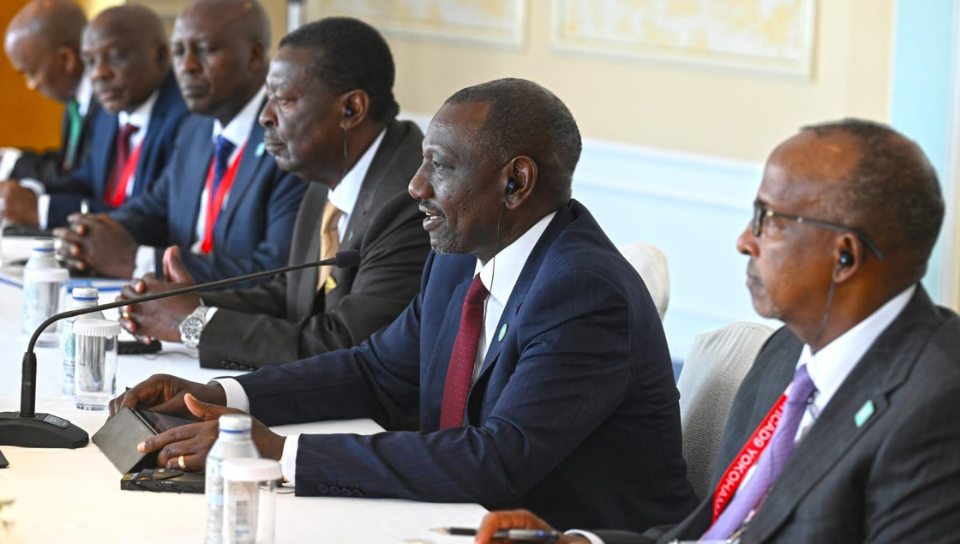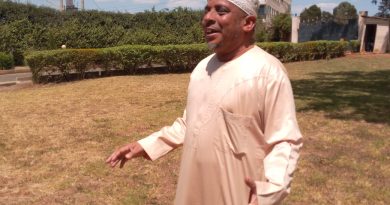Ruto Pushes Japan to Open Markets as Kenya Seeks Bigger Trade Share
By Chemtai Kirui | YOKOHAMA, Japan
President William Kipchirchir Samoei Arap Ruto has urged Japan to open its markets to Kenyan exports as he joined more than 50 African heads of state and government for the Ninth Tokyo International Conference on African Development (TICAD), a high-level forum that has shaped Japan–Africa relations for three decades.
The three-day summit, which began on Wednesday in Yokohama under the theme “Working Together for Innovative Solutions with Africa”, brings together African leaders, the Japanese government, the African Union, the United Nations, and the World Bank.

Japan’s Prime Minister Shigeru Ishiba used the opening session to propose a new “Indian Ocean–Africa Economic Zone” linking Africa with Asia and the Middle East, backed by a $5.5 billion loan package through the African Development Bank to support sustainable development and ease debt burdens.
Locally, the stakes are high: Japan has already invested over Sh600 billion here, funding projects from the Olkaria geothermal plants to the Mombasa port expansion.
The country also hosts more than 120 Japanese companies, making it one of Japan’s strongest footholds on the continent.
Nairobi previously hosted TICAD 6 in 2016, the only time the conference has been held in Africa. This cemented the country’s position as a strategic partner for Tokyo.
Despite the strong ties, the country’s trade with Japan remains lopsided. Japan exports goods worth about $1 billion (KSh130 billion) annually, while local exports to Japan total only $70 million (KSh9 billion), mostly flowers, tea and coffee.
In bilateral talks, President Ruto pressed Japanese officials to fast-track market access for avocados, tea and cut flowers—sectors that could create jobs and boost Kenya’s earnings.
“Trade within Africa must grow if we are to create jobs and wealth for our people,” President Ruto told delegates, adding that global partners like Japan must help African economies trade on fairer terms.

The delegation is also using the summit to pitch the country as a hub for clean energy and innovation. Talks are under way with Toyota Motor Corporation to introduce 5,000 electric vehicles, partly assembled locally.
The government is also in discussions with the Japan Bank for International Cooperation on financing tools for start-ups and youth-led enterprises.
On the human capital front, TICAD highlighted the African Business Education Initiative (ABE 4.0 Program), which allows African students to study at Japanese universities while training in Japanese companies before returning home.
The scheme is viewed as a key driver for transferring skills to Africa’s next generation of leaders and entrepreneurs.
Launched in 1993, TICAD remains one of the few long-standing international platforms where African leaders set the agenda in dialogue with Japan, unlike many aid-driven conferences led by other global powers.
Horiuchi Toshihiko, Director-General for African Affairs at Japan’s Ministry of Foreign Affairs, said Japan aims to move beyond traditional aid models by focusing on “solution-oriented and business-driven partnerships.”
This signals a shift in Japan–Africa relations from aid to trade and industrial cooperation.
At TICAD 8 in Tunisia in 2022, Japan pledged $30 billion in development support. This year, leaders are instead emphasizing how to leverage the African Continental Free Trade Area (AfCFTA), which could raise intra-African trade from 15% to 50% by 2035.
According to the African Development Bank, $2.9 billion has so far been mobilized under the EPSA initiative funding agriculture, infrastructure, and training.
In health, Japan has contributed $740 million toward its $1.08 billion Global Fund pledge. On innovation, Tokyo has backed new venture funds, including $60 million for Africa-focused startups.
But other big-ticket pledges, such as a $4 billion Green Growth Initiative, $130 million in food aid, $300 million in agricultural co-financing, and training for 300,000 professionals are still awaiting clear rollout, leaving questions about timelines and impact.
This year, peace and security are also high on the agenda.
African leaders are calling for reforms to the African Union’s Peace Fund to strengthen African-led responses to conflicts in Somalia, Sudan, and the Sahel.
After a bilateral meeting with President Ruto yesterday, Prime Minister Ishiba reaffirmed Japan’s intention to support the country under the Indian Ocean–Africa Economic Zone Initiative.
Tokyo also announced new grant aid for the development of Mombasa Port and welcomed agreements to expand manufacturing partnerships and skills transfer in the automotive industry.

For Kenya, TICAD 9 is about more than diplomacy.
Delegates at the summit told reporters the outcome will reveal whether Japan’s promises can be turned into real gains at home or remain another round of lofty pledges.
The summit concludes on Friday, with leaders expected to issue a joint declaration outlining a roadmap for Japan–Africa cooperation over the next three years.



